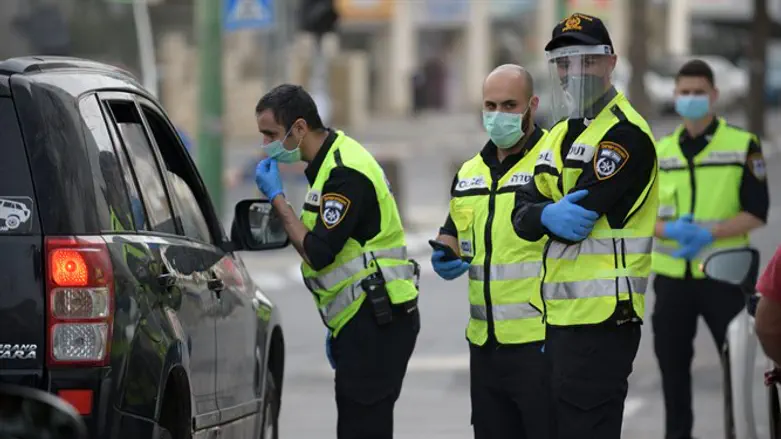
An elderly Beit Shemesh resident who lived in a zone that had been under closure until last night needed urgent dental treatment but was refused by a policeman at the checkpoint. Finally, he was transported by ambulance.
In an interview with Hamevaser, his grandson related what happened: "My grandfather is an elderly Jew, an important and respected man," the grandson noted. "Since the talk of a pandemic outbreak, Grandpa hasn't left home. He spent Seder night alone with grandmother, with no children and grandchildren who usually surround his table.
"We bring him food and leave it outside his door, from where he takes it with gloves, and immediately disinfects the bags and packaging so that G-d forbid doesn't catch the virus," he added.
"But just a few weeks ago, Grandpa began to suffer from a worsening toothache. He told the family who offered to take him to an emergency dentist who would only remove the pain, but Grandpa didn't want to leave home, nor did the dentist," the grandson said.
He said, "In recent days, the pains had reached such a level that he couldn't sleep at night, he couldn't stand the pain anymore, so we arranged for him an urgent first aid appointment. Yesterday grandfather came to the checkpoint. Before leaving his home in Ramat Beit Shemesh he put on a face mask, covered his hands with gloves, and of course he had a vial of alcogel, and in fear and trembling he crept toward the checkpoint, where I waited for him to drive him to the dental clinic."
The grandson says the policeman refused to grant the elderly man right of movement and he was forced to go back the way he came. "At the checkpoint he encountered a closed cop who in no way agreed to let him pass. My grandfather explained to the policeman that he was an old man, that he didn't leave the house at all, but now it's such an urgent case, and there's no sense in why the policeman refuses to allow him to pass, but his words fell on deaf ears. The policeman hardened his heart and refused to hear."
Finally, he said, the grandfather had to use an ambulance. "I contacted one of the charity organizations here in the city, and they dispatched an ambulance that came to Grandpa's house. This created a situation where the patient was rushed in an ambulance that transported from his home to the dental clinic!"
Hamevaser pointed out that the story highlights for the umpteenth time the magnitude of "the most serious violation of the most basic human rights under the platitude of the righteous fight against the coronavirus pandemic."
